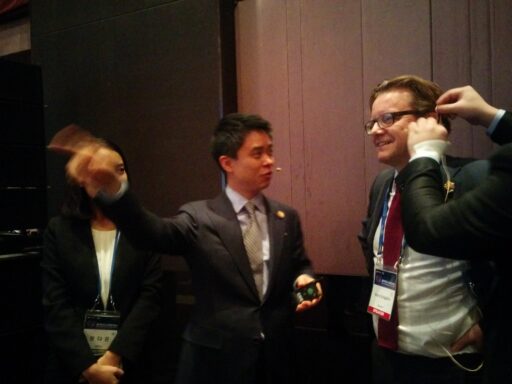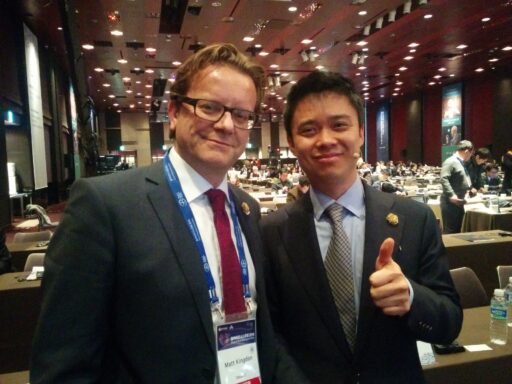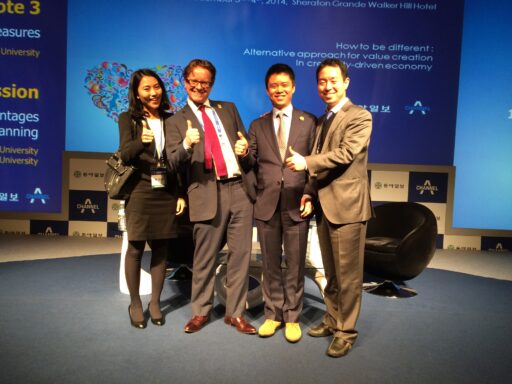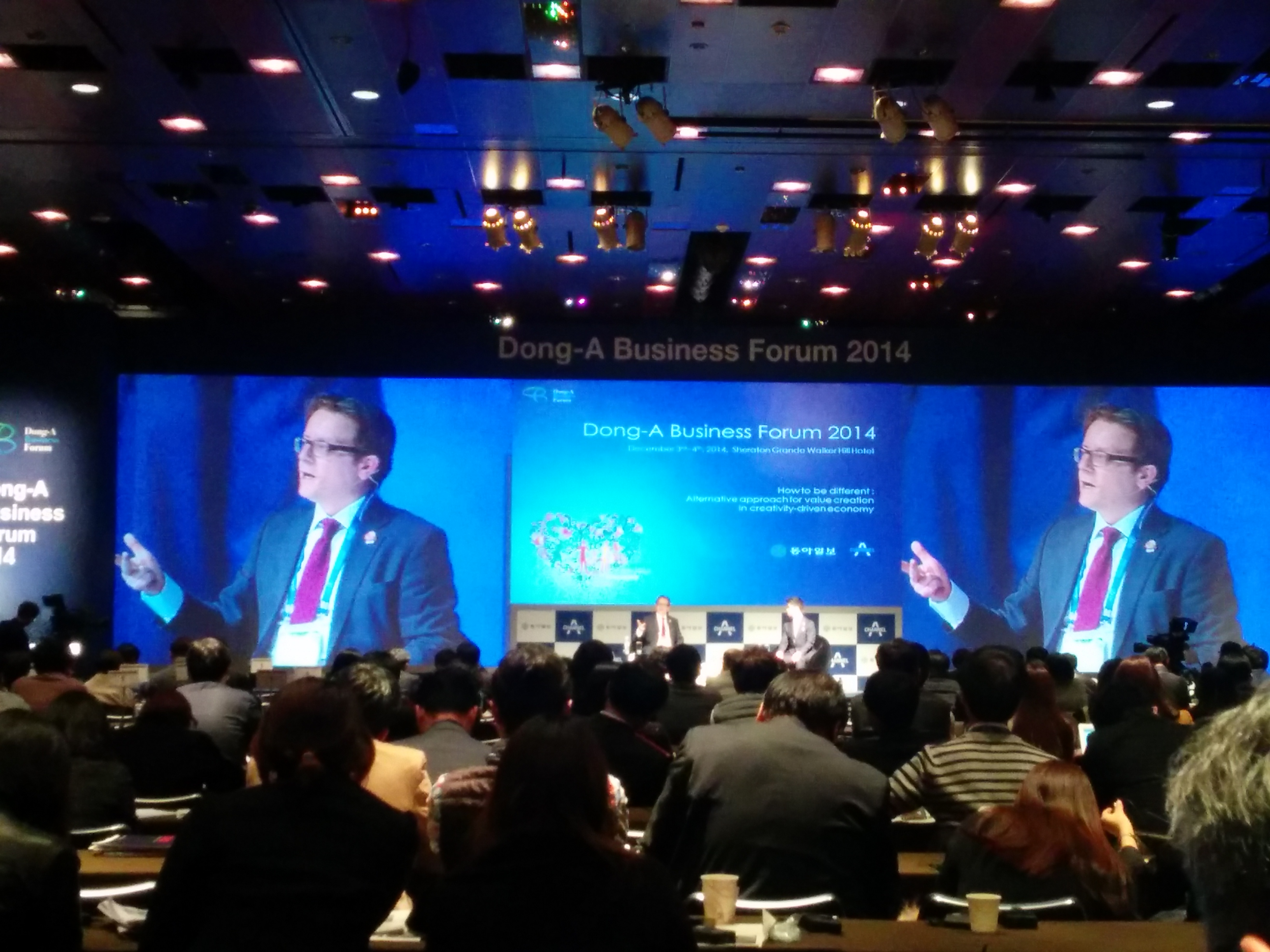Matt Kingdon gave a speech on the topic of design innovation at the Dong-A Business Form 2014. I was invited to moderate his speech by Jinseo Cho, a staff reporter of the Dong-A Business Review (DBR) and editorial director of the Harvard Business Review Korea (HBR korea). Matt is the founder of ?Whatif! innovation and has over 20 years of innovation consulting experience. He proposed that innovation is not the addition but the multiplication of four “i”s – identify, insight, idea, and implement. Put differently, Innovation cannot happen when any one of four “i” is missing, highlighting the equal importance of every aspect of innovation from research to ideation to execution.

He further emphasized in his speech that innovation needs simple tools and exploratory behaviors. First, he introduced tools such as “customer shoes” and “rope of scope.” Although these tools sounds simple, they enable managers to take the perspective of customers (customer shoes) and to prioritize needs and ideas instantly (rope of scope or simply placing needs/ideas inside or out of the rope). Managers use these tools not only to identify customers’ deeply rooted needs and address them effectively.
Then, he suggested that innovation needs the behaviors that promote exploration such as courageous curiosity or “Greenhousing.” Managers should be brave enough to pursue their curiosity and, more importantly, they should nurture immature ideas into commercially appealing innovative solutions.
His speech reminded me of David Kelley’s conversation with Roger Martin. Last year, David said, in order to generate wild ideas, people should have confidence about their own creativity (creative confidence) and then need a series of safe, small successes (guided mastery). Similarly, Matt highlighted courageous curiosity and greenhousing. To me, the most powerful insight from his speech is that innovation needs simple tools rather than a rigid process; innovators need rooms to improvise.



